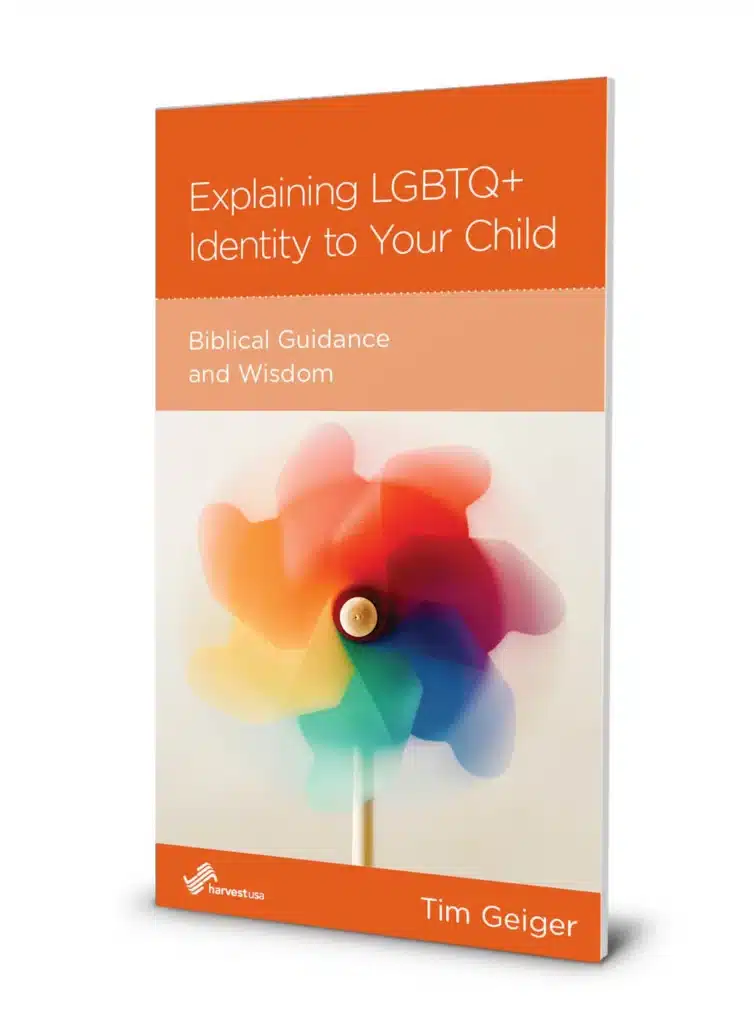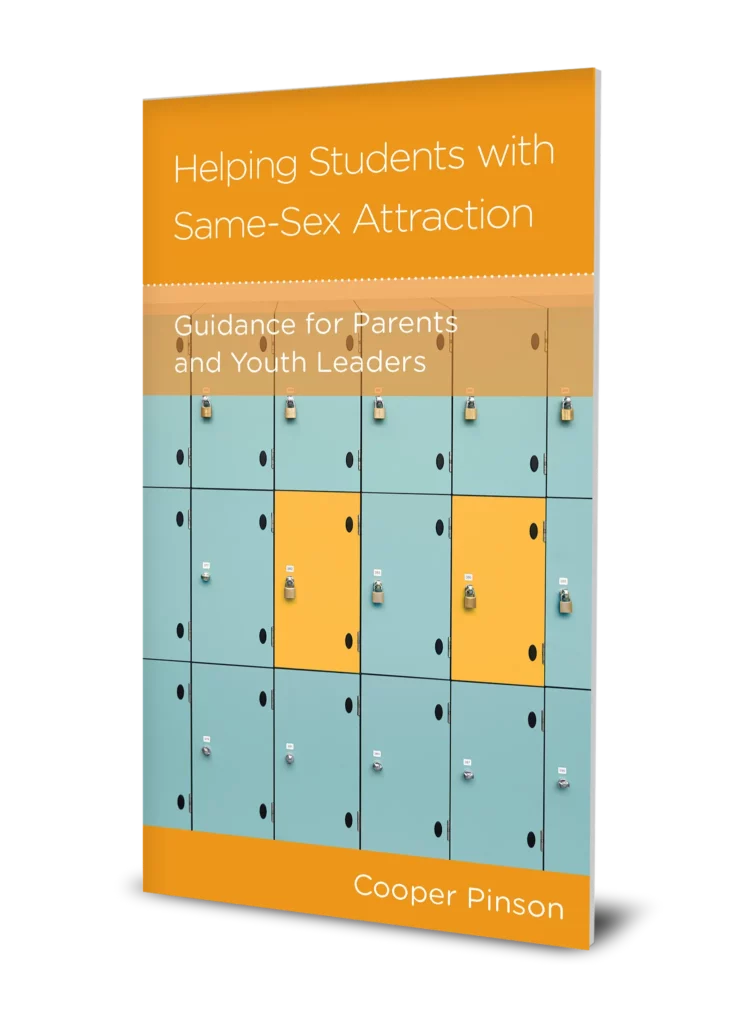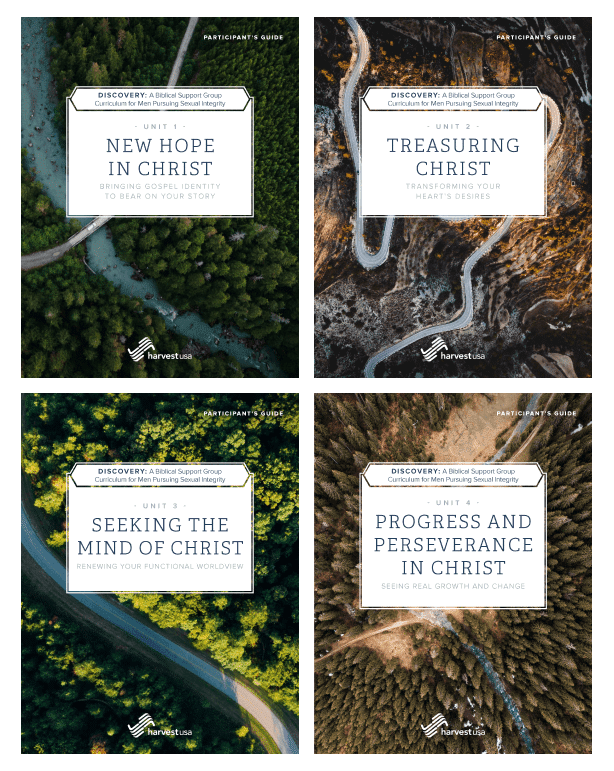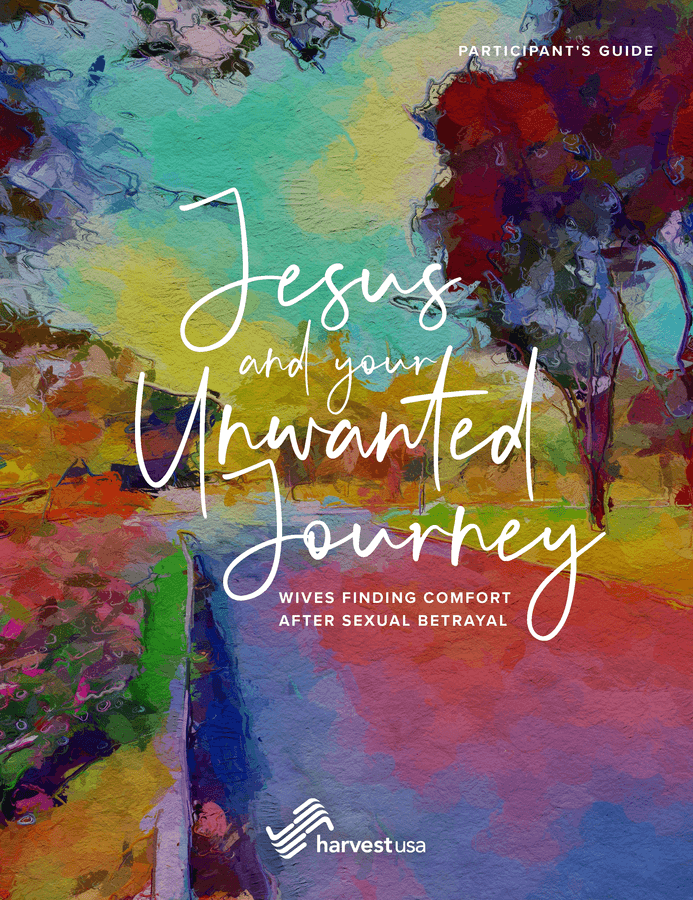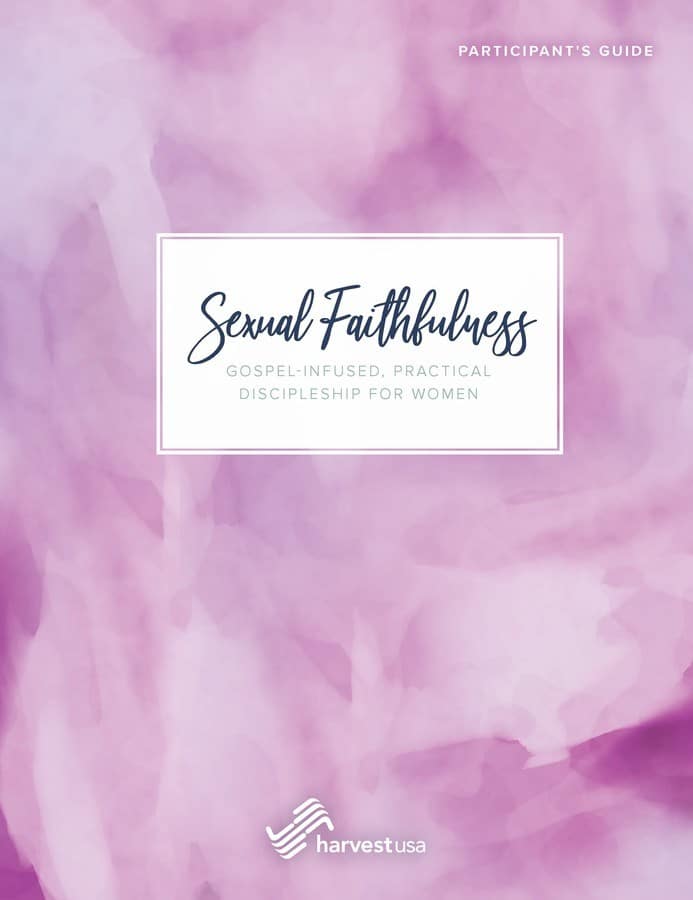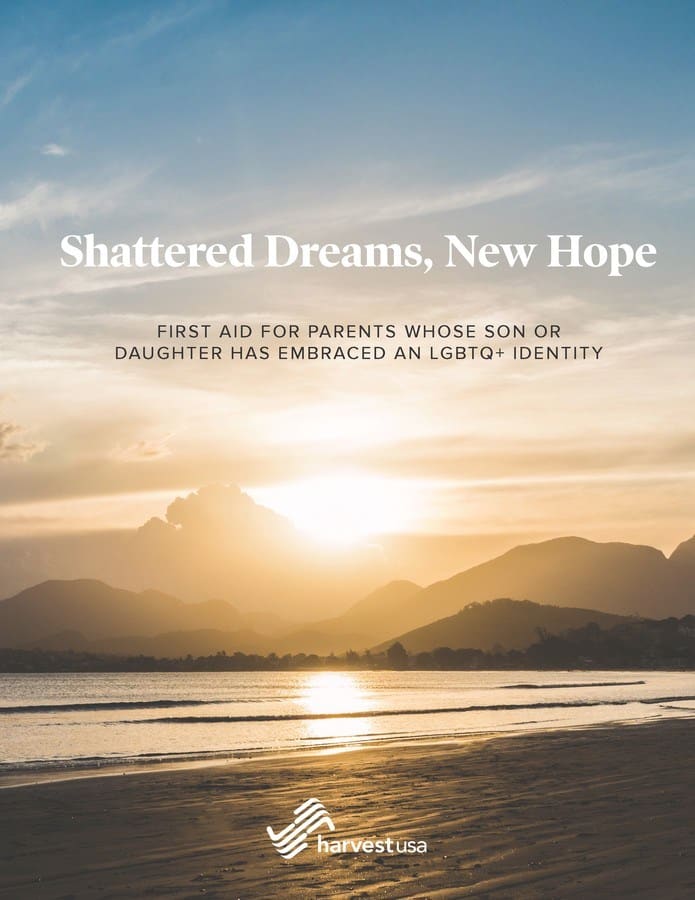Harvest USA Resources
Harvest USA actively works to develop resources that will equip church leaders and laypeople to understand a biblical view of sexuality
Search Results
ArticleApril 18th, 2024
Game On! A Parent’s Plan for Facing LGBTQ+ Challenges
read article “How Long Has He Been Like This?”
ArticleApril 17th, 2024
Mark Sanders Appears on “The Christian and the Culture”
read article “How Long Has He Been Like This?”
ArticleApril 11th, 2024
My Identity Isn’t Gay or Gay Christian; I’m a Christian, Full Stop
read article “How Long Has He Been Like This?”
ArticleApril 10th, 2024
2024 Spring Update from Harvest USA
read article “How Long Has He Been Like This?”
ArticleApril 4th, 2024
Are Nocturnal Emissions Sinful?
read article “How Long Has He Been Like This?”
ArticleMarch 28th, 2024
Lazarus, What WERE You Thinking? Resurrection Life for Shuffling, Brokenhearted Believers
read article “How Long Has He Been Like This?”
ArticleMarch 21st, 2024
Parents: Prayer Is Your Lifeline, Not a Last Resort
read article “How Long Has He Been Like This?”
ArticleMarch 14th, 2024
Ministry Highlight: Men’s Ministry
read article “How Long Has He Been Like This?”
ArticleMarch 7th, 2024
Mark Sanders Appears on “The Becket Cook Show”
read article “How Long Has He Been Like This?”
ArticleMarch 7th, 2024
Suffering Sinners, Arise as a Band of Brothers
read article “How Long Has He Been Like This?”
ArticleFebruary 29th, 2024
When LGBTQ+ Hits Home, There’s Help
read article “How Long Has He Been Like This?”
ArticleFebruary 22nd, 2024
Help! My Past Sin Is Impacting My Marriage
read article “How Long Has He Been Like This?”
ArticleFebruary 15th, 2024
Should Christians Attend a Same-Sex Wedding?
read article “How Long Has He Been Like This?”
ArticleFebruary 8th, 2024
Gen Z: Sexuality, Gender, and the Beauty of Christ
read article “How Long Has He Been Like This?”
ArticleFebruary 1st, 2024
Parents of Sexual Strugglers: Fight Lies with Scripture
read article “How Long Has He Been Like This?”
ArticleJanuary 25th, 2024
Jesus and Queerness: The Cross and the Q of LGBTQ+
read article “How Long Has He Been Like This?”
ArticleJanuary 18th, 2024
Do You Have a Pornographic Style of Relating?
read article “How Long Has He Been Like This?”
ArticleJanuary 11th, 2024
A Prayer for a Fresh Start with Sexual Faithfulness
read article “How Long Has He Been Like This?”
ArticleJanuary 4th, 2024
Should I Prepare for Marriage Even Though It’s Not Guaranteed?
read article “How Long Has He Been Like This?”
ArticleDecember 21st, 2023
Year-End Update from Mark Sanders, President Harvest USA
read article “How Long Has He Been Like This?”















